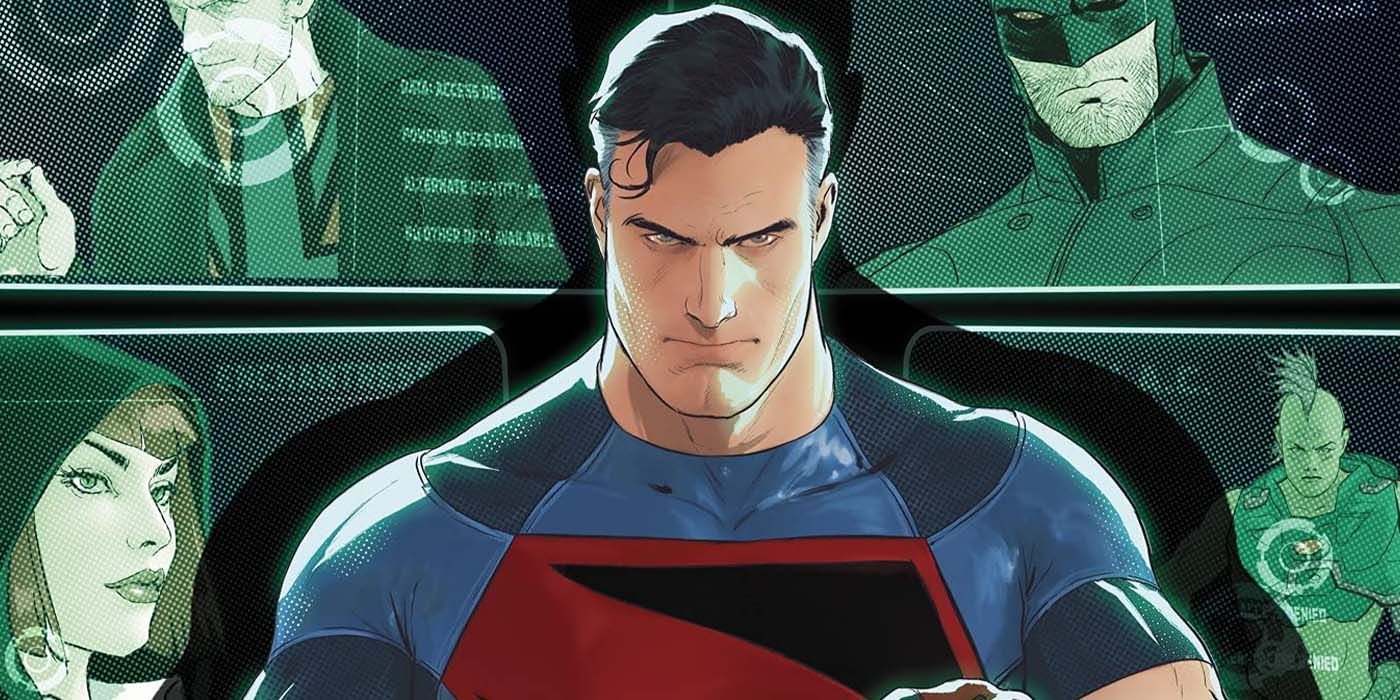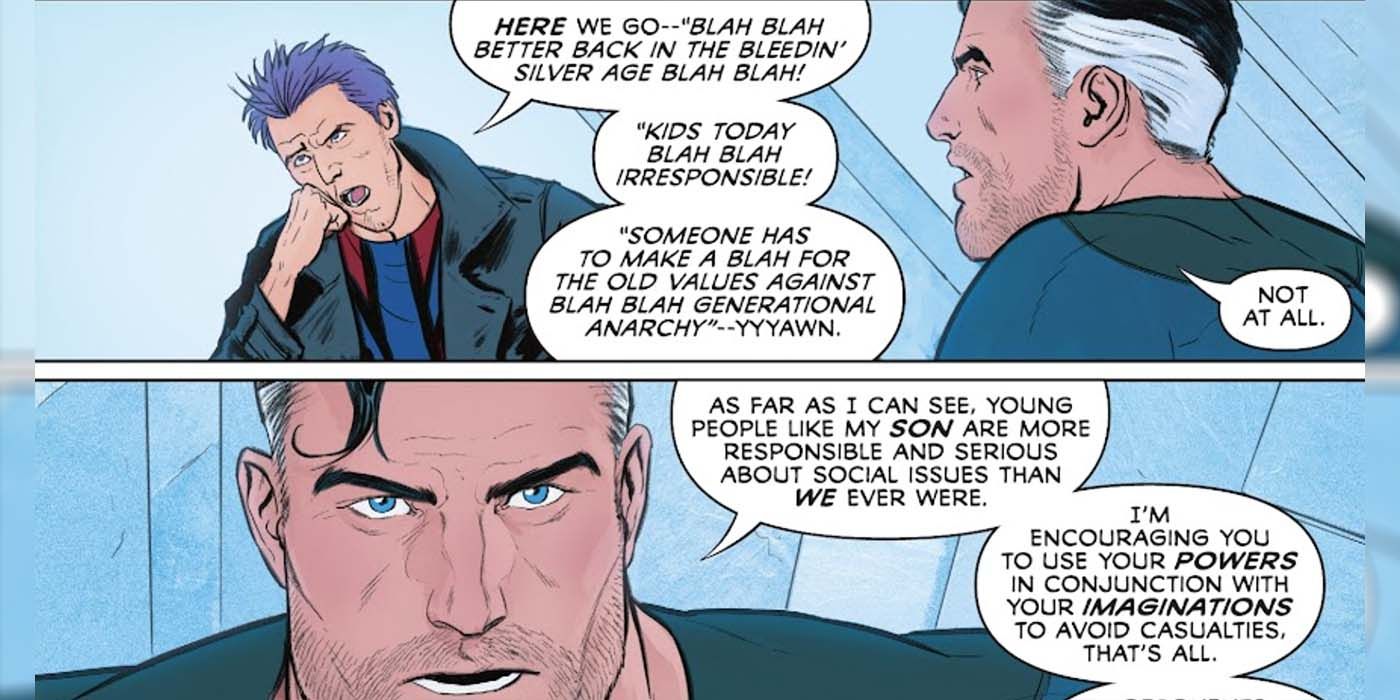Warning: spoilers for Superman and the Authority #3 are ahead.
Over the course of his publication history, Superman has gone by a number of nicknames in DC Comics. Big Blue, The Man of Steel, and the Last Son of Krypton are all names that describe aspects about his character's heroism. But one that has been under-utilized over the years, the Man of Tomorrow, has finally been made relevant again in Grant Morrison's ongoing Superman and the Authority series. Thus far, Superman and the Authority has explored how the current state of the world requires both divergent thinking and unconventional heroes, bringing one of Superman's oldest nicknames to new significance.
In Superman and the Authority #3, Manchester Black accuses Superman of wanting things to go back to the Silver Age when the latter suggests that they avoid killing their enemies (written by Grant Morrison, art by Mikel Janín and Travel Foreman, colors by Jordie Bellaire and Alex Sinclair, letters by Steve Wands). Superman defends himself by saying that, "As far as I can see, young people like my son are more responsible and serious about social issues than we ever were. I'm encouraging you to use your powers in conjunction with your imaginations to avoid casualties, that's all."
This interaction shows how Superman is finally living up to his name as the Man of Tomorrow, as he expresses his belief in the next generation of superheroes. While Superman is certainly one of the superhero genre's oldest characters, he has continued to remain relevant due to his commitment to envisioning a better and brighter future. As the Man of Tomorrow, his character is built on looking forwards to what the future could look like, and in this case, that involves having faith in the younger generation.
With this appearing in issue three of Superman and the Authority, it is clear that Grant Morrison's vision of the character is driven by the Man of Tomorrow nickname. Superman has always been an aspirational figure, but within the events of Superman and the Authority, this has been complicated by the fact that him and his allies previously failed to bring the world to a better place. Instead, what Morrison proposes here with Superman is that he is most effective as an evolutionary character. Rather than repeating his heroics of the Silver Age, Superman now understands that the world requires a level of engagement that the next generation has already mastered. He is of no use to the future if he cannot adapt to the world's changing needs.
Thus far, Superman and the Authority has examined how Superman's past heroics have ultimately failed humanity, because they were built on the performance of being a superhero rather than continuing the work of John F. Kennedy and Martin Luther King, Jr.. But with the character now guided by the ethos of his Man of Tomorrow nickname, Superman sees how necessary it is for him to reflect on his past mistakes in order to make a meaningful impact on the future. In this sense, Superman's identity as the Man of Tomorrow lies in his ability to redefine his own heroism.


